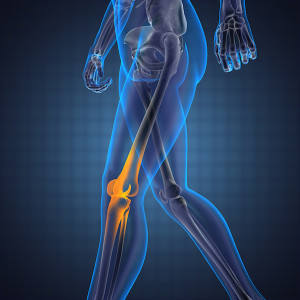
In cases of acute ligament injuries, patients usually describe hearing a loud popping noise which is followed by intense knee pain.
The pain makes it difficult for the patient to walk or bear weight. The knee joint will become swollen within some hours of the injury due to the occurrence of bleeding within the joint. This makes it hard to straighten the knee.
If this injury remains untreated, there will be instability in the knee. The patient may report recurring pain and inflammation as well as giving way while walking, specifically on uneven surfaces or climbing up or downstairs.
Orthopedic Institute of the West, led by prudent board-certified orthopedic surgeon Dr. Brandon Gough, provides hip and knee surgery procedures to patients in Phoenix, Scottsdale, Arizona, and surrounding locations in the amazing Copper State.
Signs and Symptoms
The signs and symptoms of an ACL injury are as follows:
- A loud “pop” sound or “popping” sensation in the knee
- Severe pain and instability when trying to continue the activity
- Inflammation within a few hours of receiving the injury
- Motion range loss
- Feeling unstable or a sense of the knee buckling when bearing weight
Consulting a Doctor
The patient should seek immediate medical attention if any knee injury displays the signs and symptoms of an ACL injury. The knee comprises an intricate structure of ligaments, tendons, bones, and tissues that work in tandem. It is vital for the patient to get an immediate and accurate diagnosis to establish the severity of the injury and receive appropriate treatment.
What tests will a medical professional use for a torn knee diagnosis?
A torn ligament diagnosis starts with the medical practitioner understanding how the injury took place. The patient can usually provide a detailed description of their leg and body position as well as the events leading up to the injury. The patient will also give the treatment provider details on how they felt during and after the injury, and the angle of impact.
Physical Exam
The physical exam of the knee typically follows a fairly routine pattern. The hip and knee surgeon will examine the knee for apparent inflammation, deformity, and bruising. They will determine the areas of tenderness as well as the subtle indications of effusion (knee joint fluid).
An important part of the examination in knee ligament injury is a stability assessment. There are four ligaments in the knee that could potentially be injured.
Therefore, the examiner will assess each to understand which of these ligaments are injured. It is vital to understand that a ligament injury in the knee may involve damage to an isolated structure or more than one ligament, as well as other knee structures, may be involved.
An acute situation will cause a painful, inflamed joint. The initial exam may be challenging as the severe pain and presence of fluid may restrict the ability of the patient to cooperate and relax their leg. In case of a spasm of the quadriceps and hamstring muscles, assessing ACL stability will be challenging.
Dedicated board-certified orthopedic surgeon Dr. Brandon Gough receives patients from Phoenix, Scottsdale, Arizona, and other towns and cities in this area of the country for ligament tear injury.
For more information about hip and knee procedures and treatments by Arizona Board certified orthopedic surgeon, Brandon Gough, M.D., please click here or call us at 602-359-3088. Taking new patients in and around Phoenix, Scottsdale, Glendale, Tempe, Mesa and surrounding Arizona cities.


